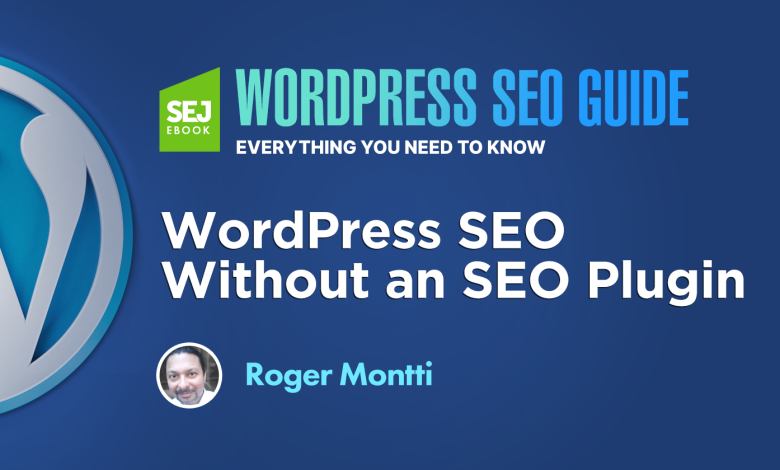
Optimizing WordPress SEO Without a Plugin
I often find that certain WordPress projects don’t require the extensive features provided by SEO plugins. Instead, I optimize some of my WordPress sites without relying on these plugins. This article guides you on how to manage WordPress SEO without the need for an SEO plugin.
This isn’t to dissuade you from using an SEO plugin but to demonstrate how you can fully control your SEO independently if you prefer.
The Utility of SEO Plugins
SEO plugins are invaluable for publishers who lack skills in PHP coding, are unsure about HTACCESS files, or find robots.txt files perplexing. The technical aspects of SEO can be complex, and SEO plugins make web publishing more accessible.
While some plugins are criticized for their excessive features, not all are bloated. There are streamlined and modular SEO plugins that allow you to choose only the features you need.
For example, The SEO Framework is a robust choice for those seeking more control over their SEO while customizing which features to use. SEO plugins are generally a safe bet for risk-averse publishers, often representing the most trusted solution.
Why I Don’t Use SEO Plugins
After experiencing issues with a bug in an SEO plugin, I opted to launch a site without any SEO plugins. Pleased with the results, I transitioned other sites away from using them. Moving away from a single SEO plugin gave me better control over each site’s SEO.
This took me back to my initial approach with WordPress, optimizing without a dedicated SEO plugin.
Four Key Reasons I Avoid SEO Plugins:
- Features that replicate WordPress or theme functionality.
- Redundant features addressing presumed issues.
- Complexity leading to potential bugs and conflicts with other plugins.
- Desire for greater control over SEO.
Standalone Solutions Offer Several Benefits:
- Easier coding and maintenance for specific needs.
- Some SEO features don’t necessitate a plugin.
- Standalone solutions are simpler to manage.
- A leaner WordPress setup without extraneous features.
Essential SEO Features for WordPress
Modern WordPress is quite robust. Canonicals, for instance, are automatically managed. Many themes now include built-in SEO features like schema markup, breadcrumb navigation, and Open Graph meta data.
Depending on your template, here are essential SEO features to consider:
- Breadcrumbs with Schema.org Structured Data.
- Meta descriptions.
- Open Graph meta data.
- Removal of category base from URLs.
- Schema metadata.
- An easy method to add the nofollow attribute to selected links.
Recommended WordPress Plugins for SEO:
- Breadcrumb NavXT
- Easy WP Meta Description
- Open Graph for Facebook and Twitter Card Tags
- Remove Category from URL
- Schema WordPress Plugin
- Ultimate Nofollow WordPress Plugin
Optional SEO Features:
- Attachment Pages Redirect
- Redirection WordPress Redirect Plugin
- XML Sitemap Generator
Specific SEO Implementations
Breadcrumbs:
Breadcrumbs are advantageous. Properly enhancing breadcrumbs with Schema structured data can lead to richer search engine listings and potentially higher click-through rates. While manual coding is possible, plugins like BreadCrumb NavXT handle both navigation and schema data efficiently.
Meta Description:
Easy WP Meta Description is an effective solution for managing meta descriptions, though they aren’t direct ranking factors. Google might rewrite your meta description if a page excerpt is more relevant, making this feature optional.
Title Tag:
I ensure that the article title also serves as a suitable title tag, eliminating the need for additional coding or plugins for this function.
Open Graph Meta Data:
Strictly for social sharing appeal, Open Graph Meta Data plugin allows you to specify images and descriptions, enhancing your link presentation on social platforms.
Remove Category Base:
The "category" term in URLs is unnecessary. Shorter URLs are easier to remember and provide clearer information. The Remove Category Base plugin simplifies URL structures effectively.
Schema Structured Data:
The Schema WordPress plugin is great for integrating comprehensive Schema structured data, though it can also be added manually as needed.
Ultimate Nofollow Plugin:
This plugin adds the nofollow attribute option directly during URL creation, providing a straightforward solution for link management.
Optional SEO Adjustments
Attachment Pages Redirect:
This plugin corrects the behavior of image attachment pages, ensuring they redirect appropriately.
Redirect Manager:
Use if you prefer not to edit htaccess files manually for page redirects. It’s helpful for managing legitimate page updates without technical complications.
404 Responses:
Contrary to some SEO advice, 404 error codes do not harm your site’s integrity. They’re natural for a healthy website. Redirect old pages only to relevant new URLs, not to the homepage.
Site Map Necessity
Even if not essential, XML sitemaps can expedite Google’s discovery of site changes. Using plugins or standalone applications to generate these maps can be more efficient than overloading your resources.
Redundant SEO Features
Some features in SEO plugins may be redundant or unnecessary:
- Canonical URLs: Handled natively by WordPress.
- Robots.txt and htaccess Editors: Better managed with a text or HTML editor, with care.
- 404 Redirection: Handle 404 errors judiciously, fixing actual mistakes.
- Sitemap Generators: Useful but not always necessary. Manually or through simpler plugins can be sufficient.
- Keyword Research and Word Processing: Standalone apps might offer better, more focused functionality compared to plugins.
Conclusion
Rather than defaulting to a universal SEO plugin filled with unnecessary features, consider how many of those features you genuinely need. Often, a more selective approach using individual plugins or manual solutions provides greater control and efficiency.
For those adept in coding and managing WordPress, a customized, plugin-light approach to SEO might be more suitable than relying on an all-encompassing SEO plugin solution.



